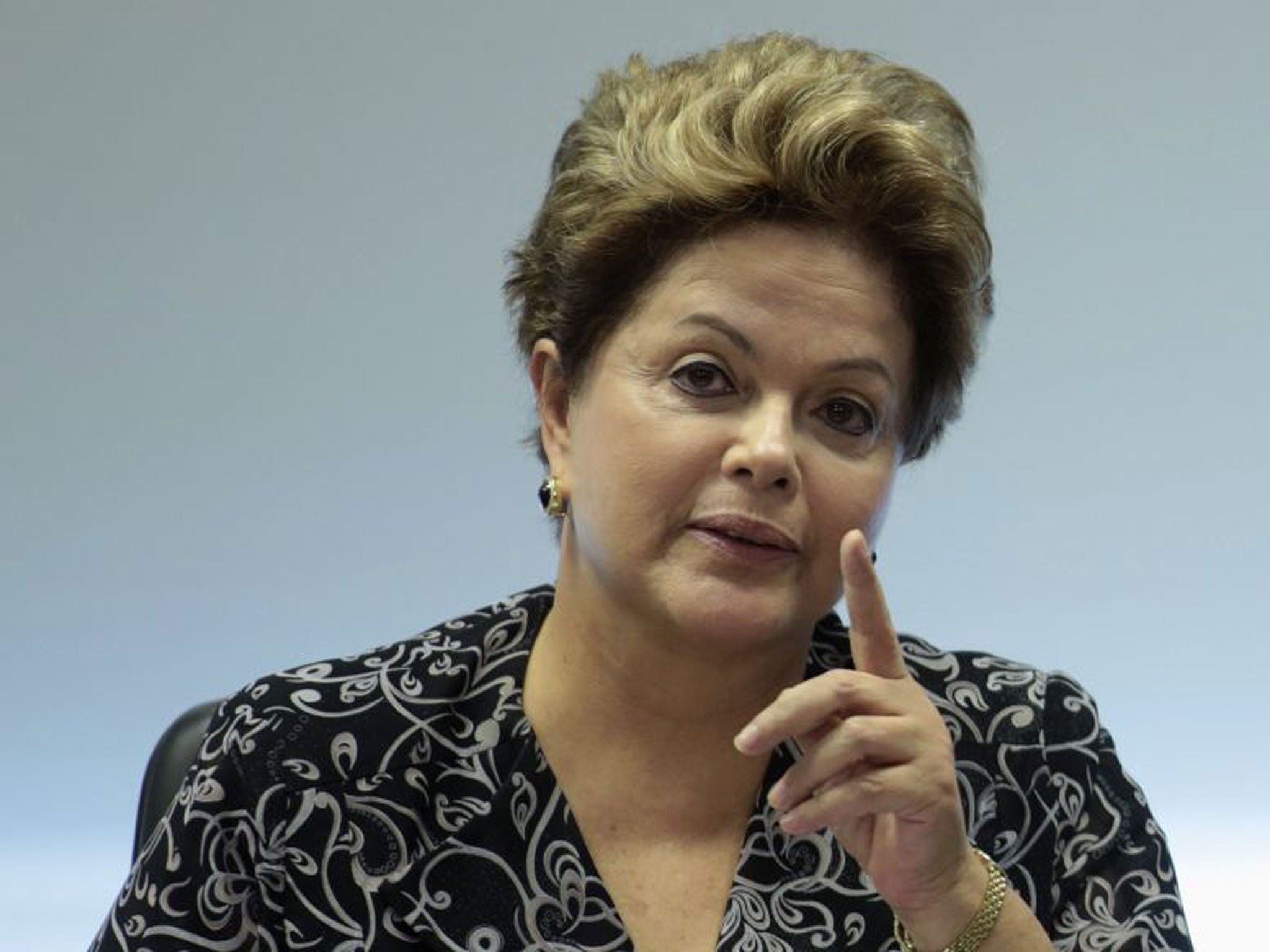Brazil President Dilma Rousseff meets youth protesters as rumours mount of general strike

Your support helps us to tell the story
From reproductive rights to climate change to Big Tech, The Independent is on the ground when the story is developing. Whether it's investigating the financials of Elon Musk's pro-Trump PAC or producing our latest documentary, 'The A Word', which shines a light on the American women fighting for reproductive rights, we know how important it is to parse out the facts from the messaging.
At such a critical moment in US history, we need reporters on the ground. Your donation allows us to keep sending journalists to speak to both sides of the story.
The Independent is trusted by Americans across the entire political spectrum. And unlike many other quality news outlets, we choose not to lock Americans out of our reporting and analysis with paywalls. We believe quality journalism should be available to everyone, paid for by those who can afford it.
Your support makes all the difference.Brazil President Dilma Rousseff pledged on Friday to open new channels of dialogue with the nation's youth, who have dominated the nationwide protests that have rocked the country over the past two weeks.
Ms Rousseff and Education Minister Aloizio Mercadante met leaders from 25 youth organisations, including student and labour unions, as well as gay rights advocates, as part of the Brazilian leader's continuing talks with different interest groups.
No concrete announcements resulted from the talks in the capital city of Brasilia, which Ms Rousseff described as the start of a dialogue with the nation's youth.
Though no follow-up meetings have yet been scheduled, the July 8 launch of a long-planned government website focusing on youth issues will help facilitate continued talks, Ms Rousseff's office said.
The demonstrations took off earlier this month over a 10-cent rise in bus and subway fares in Sao Paulo and evolved into a mass, nationwide movement voicing public anger over a range of issues such as government corruption, poor education and health care.
Scattered smaller protests continued on Friday, with a demonstration by taxi drivers near Rio de Janeiro's Santos Dumont domestic airport over proposed changes to the rules governing taxi licenses.
Riot police in Sao Paulo state used tear gas grenades to disperse a small group of demonstrators who had blocked a multi-lane highway, and another demonstration was under way in the north-eastern city of Natal.
Social networks, which were a main forum for organising protest last week that brought hundreds of thousands of people onto the streets, were abuzz yesterday with rumours of a general strike on Monday.
According to the posts on social media, the strike is to take place in every state and will focus on demands for better public services and an end to corruption as well as labour-related issues like reducing the work week from 44 to 40 hours and shelving a bill to allow companies to increase the use of outsourced workers.
However, representatives of Brazil's two biggest unions, the Central Workers Union and Union Force, said they knew nothing about a general strike. They said they are planning a national slowdown for July 11.
AP
Join our commenting forum
Join thought-provoking conversations, follow other Independent readers and see their replies
Comments